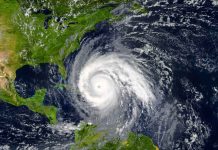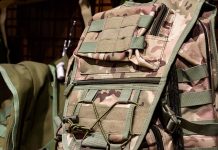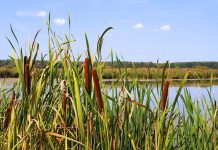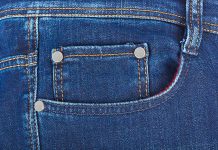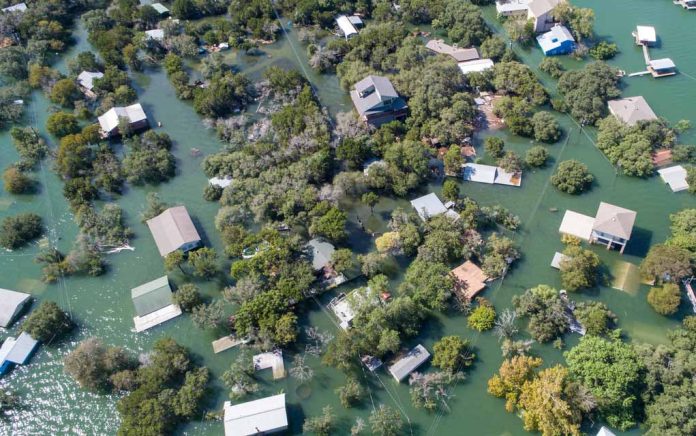
It’s been raining for days and now there is a monster storm with epic winds heading your way. The nearby river crested yesterday, some areas have already been evacuated, and a few main roads have already been closed. Whether you realize it or not, you and your family may be in real danger. Planning is key, so now is the time to take action. What do you do?
Flood Prep
While a little water never hurt anyone, floods can destroy homes and lives in a matter of minutes. If you live in or near a flood zone, it’s best to be prepared so your home and those in it face as little threat as possible. Start off by making sure you’re prepared with the things listed below.
- Flood Insurance: Even if your home is paid for and you aren’t required to carry insurance, floods can destroy entire homes… even if they’re still standing. Mold and other things that come with water exposure can make your home inhabitable. Flood insurance can alleviate some of the financial strain that comes with rebuilding, repairing or relocating.
- Home Protection: If you have to leave your home, it’s best to be prepared to protect it. A few inches of water can destroy the structure of a home before you know it. Be prepared with sandbags to hold water back or even shovels to dig ditches around the perimeter to redirect it. Make sure the construction of your home is such that it can withstand the force of a flood (as much as is realistic). If it seems inevitable that you have to leave, or that water is going to enter your dwelling, unplug appliances and shut off all utility supplies.
- Water: Believe it or not, water is the thing you will need the most. You can survive without food longer than you can without water. Though you may be surrounded by it, floodwater is contaminated with all sorts of debris and bacteria and is unsuitable for drinking. Storing water should be a number one priority no matter where you live or what risks you face.
- Food: Non-perishable items are a must. Don’t trust packaging 100%, either. Store your food supplies in waterproof containers for an extra layer of protection.
- Medication/First Aid: Even if no one in the home regularly takes medications, it’s best to have a supply for emergency use. We aren’t talking about the medicine cabinet, either. Create a medical supply kit or two so you have one within easy reach at all times and are prepared in case someone gets sick or injured. One wound can lead to a deadly infection.
- Communication: When we say “communication,” we aren’t talking about cell phones. Power supplies will end eventually and cell towers could go down. Be prepared with radios, batteries and even a flare gun in case you get trapped somewhere and need to signal your location.
- Shelter: You may need to leave your home at some point to seek higher ground, or even seek higher ground ON your home if you can’t get out of the area in time. It’s best if you have shelter other than seasonal clothing, but at least make sure you have rain gear to meet the most basic needs. A small tent, mylar blankets and/or even a piece of canvas can help protect you from the elements. Waterproof shoes and extra socks are also a must.
- Energy Supplies: At some point, you’re likely to lose power, so be sure to stay stocked on batteries, solar energy sources and/or any sort of power source that doesn’t require outside supplies. A generator is a handy device to have, but it isn’t helpful once you run out of gas, can’t get to a gas station or the gas station itself doesn’t have power. And, don’t forget the price gouging that’s going to happen if the stations do maintain power and you can get to them. You’ll also need a dry and well-ventilated place to run a generator — which may not be possible to find during a flood.
- Fire: You’ll need some sort of heat source, whether it’s to keep warm or help dry out your clothing. It’s best if this source is self-contained so you can use it anywhere… even on the roof.
- Weapons: You’re especially susceptible to a threat if you’re well-prepared. No matter how friendly the neighbors are, when lives are at stake, people act outside their normal personalities. Be prepared to defend yourself.
- Practiced Plan: No matter how well prepared you are with gear and emergency supplies, it won’t mean a thing if you don’t have a plan. If you aren’t the only person in your house, you not only need supplies but you also need to know who is responsible for doing what. In emergency situations, you don’t want anyone to have to stop and think about what they need to do. You want them to be able to act quickly, using practiced methods. This plan should include knowing where supplies are, who is responsible for what supplies, where to take them, how to use them and where to meet should the household become separated.
Travel During a Flood
Whether you have to evacuate your home or you’re caught on the road, keep a few simple things in mind as you travel during a flood. Remember, it only takes about six inches of moving water to sweep you off your feet. That being said, try to avoid moving water whenever you can, because even if it doesn’t knock you off your feet, it’s likely to be filled with debris, bacteria and other dangerous things. Use a stick or other long object to gauge the depth of the water and what’s below it. Be sure to avoid any areas with electrical lines.
You might feel like you’re safer if you’re trapped in a car than on foot, but that isn’t always the case. Cars can get washed away and aren’t always the most convenient for making a quick getaway to higher ground. Make sure your vehicle contains a special tool or heavy object that can break a window in case you get trapped inside.
Never try to drive through a flooded area; you have no idea how strong the current is or what is under all that water. Water can quickly change a landscape and the road you’re on could have turned into a sinkhole filled with water. If you find yourself trapped, exit the vehicle immediately, even if that means breaking a window.
Be sure to maintain access to and follow instructions given by local authorities. That means following all detour signs and knowing where shelters are set up. However, don’t rely solely on government resources — they may not be available right away and they could quickly run out of supplies.
As with any emergency situation, the best method of prevention is preparation. That means knowing what radio stations to listen to in your area during emergency situations, where to go, what to expect and planning for all of the above. If you’re prepared, you may be able to ride out the situation with less damage than those who aren’t.
Copyright 2019, TacticalNews.com




